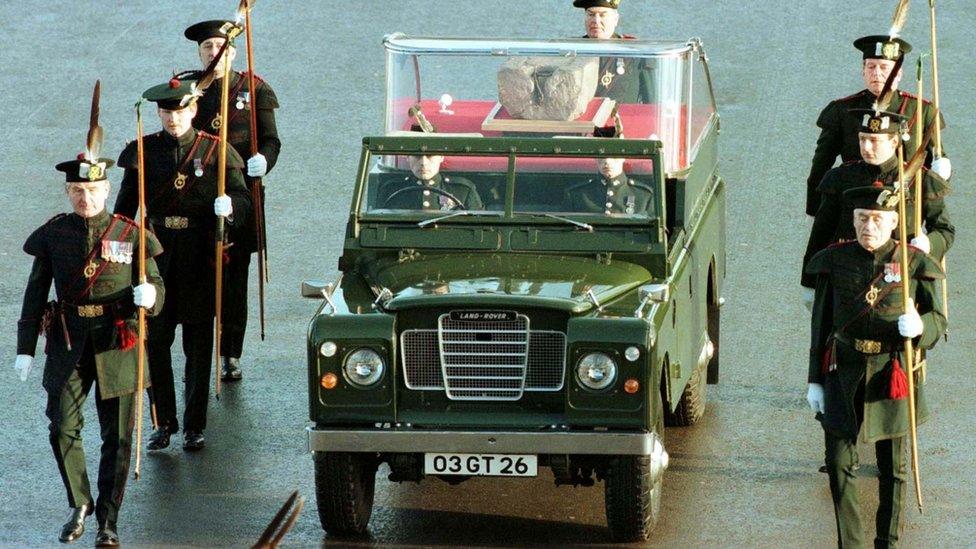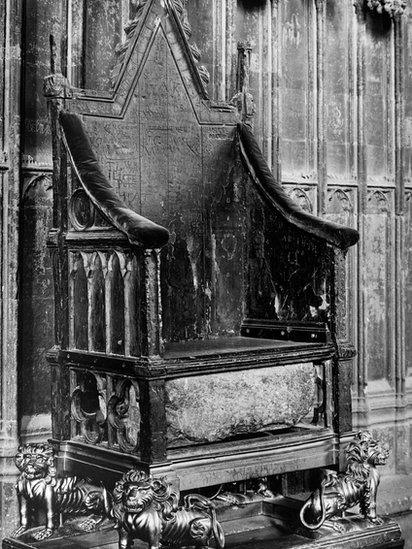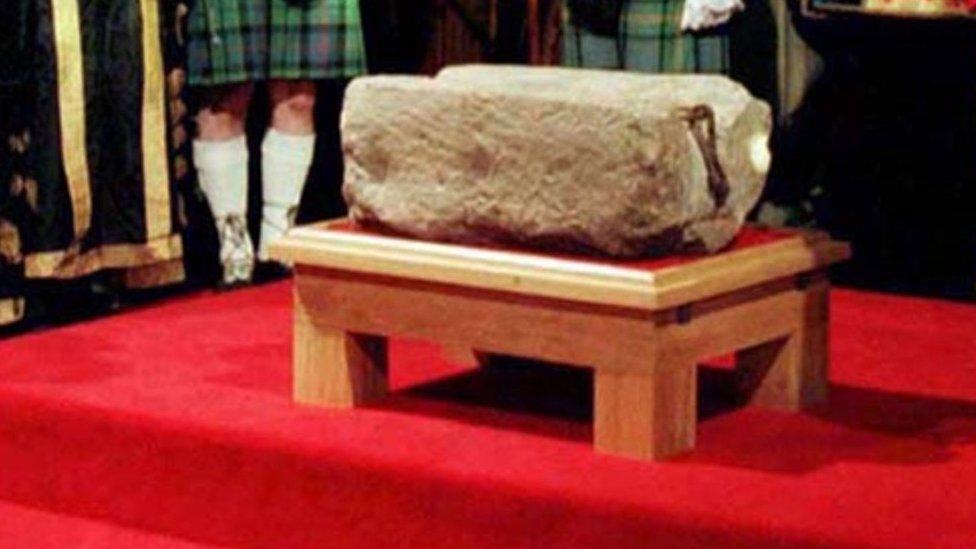Stone of Destiny to return to Westminster Abbey for coronation
- Published

The stone was moved back to Scotland in 1996
An ancient symbolic stone is to be moved from Edinburgh Castle to London for the King's coronation.
The Stone of Destiny, which was used in the inauguration of Scottish kings for centuries, was seized by King Edward I and built into a throne at Westminster Abbey in 1296.
Also known as the Stone of Scone, it was returned to Scotland in 1996.
The Queen sat above the stone when she was crowned in 1953 and it will feature in the ceremony for her son.
The coronation date has not yet been set.

The stone was set into the Royal Throne at Westminster Abbey until it was returned to Scotland
Historic Environment Scotland (HES), which manages Edinburgh Castle, announced the stone would be used in King Charles III's coronation before being returned to the castle's Crown Room.
HES said: "The stone will only leave Scotland again for a coronation in Westminster Abbey."
The Stone of Destiny, described as coarse-grained, pinkish buff sandstone, is seen as a historic symbol of Scotland's monarchy.

The Stone of Destiny is currently on display at the Great Hall in Edinburgh Castle
Having been removed from Scotland by King of England Edward I in the 13th Century, the stone was eventually returned to the Scots on St Andrew's Day in 1996. By this point, the Crowns of Scotland and England had been merged for nearly 400 years.
In 1950, four Scottish students famously stole the stone from Westminster Abbey. It was found months later, 500 miles away, at the high altar of Arbroath Abbey.
In November 2020, First Minister Nicola Sturgeon announced plans to relocate the stone to Perth.

Follow BBC London on Facebook, external, Twitter , externaland Instagram, external. Send your story ideas to hellobbclondon@bbc.co.uk, external